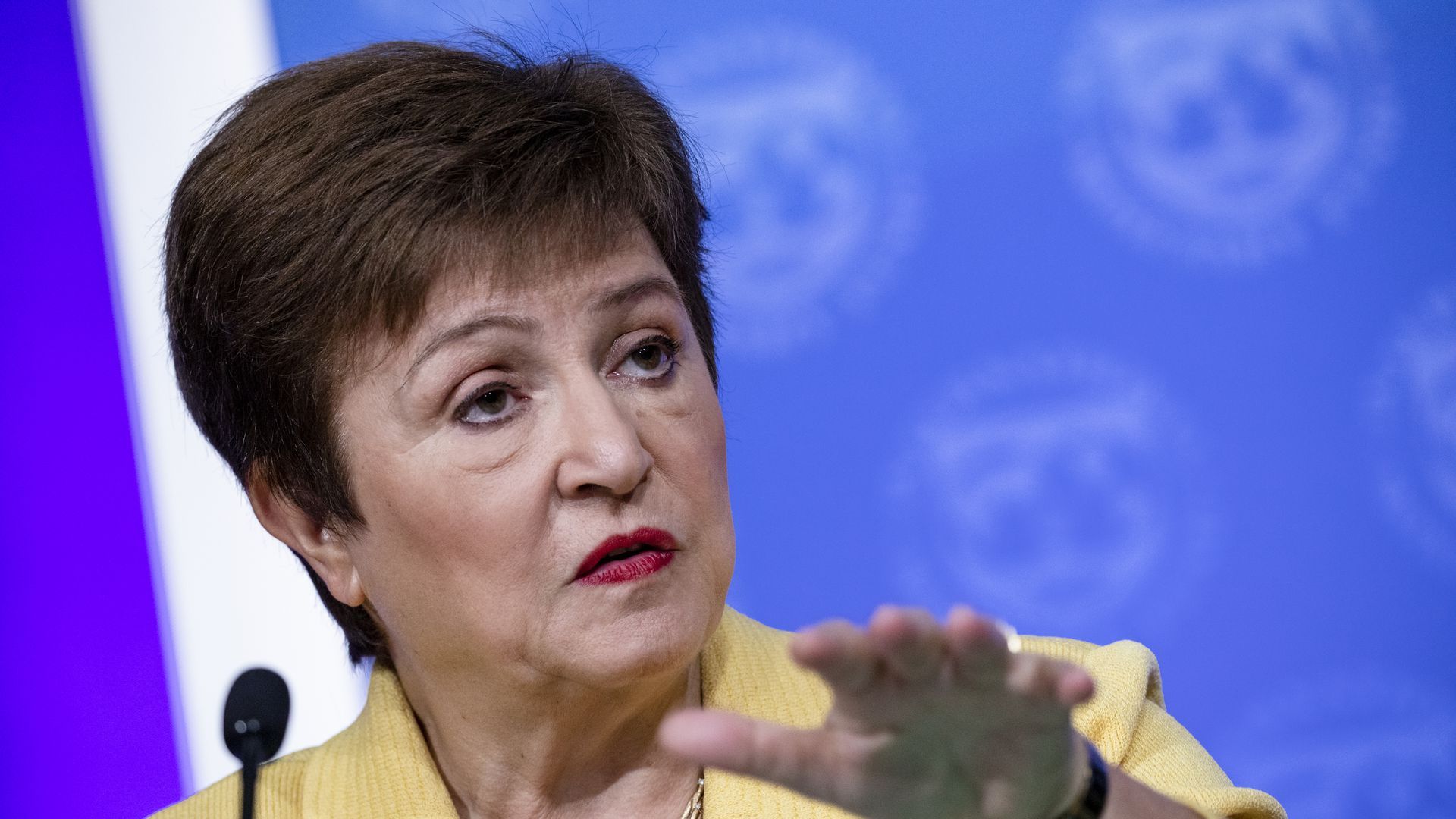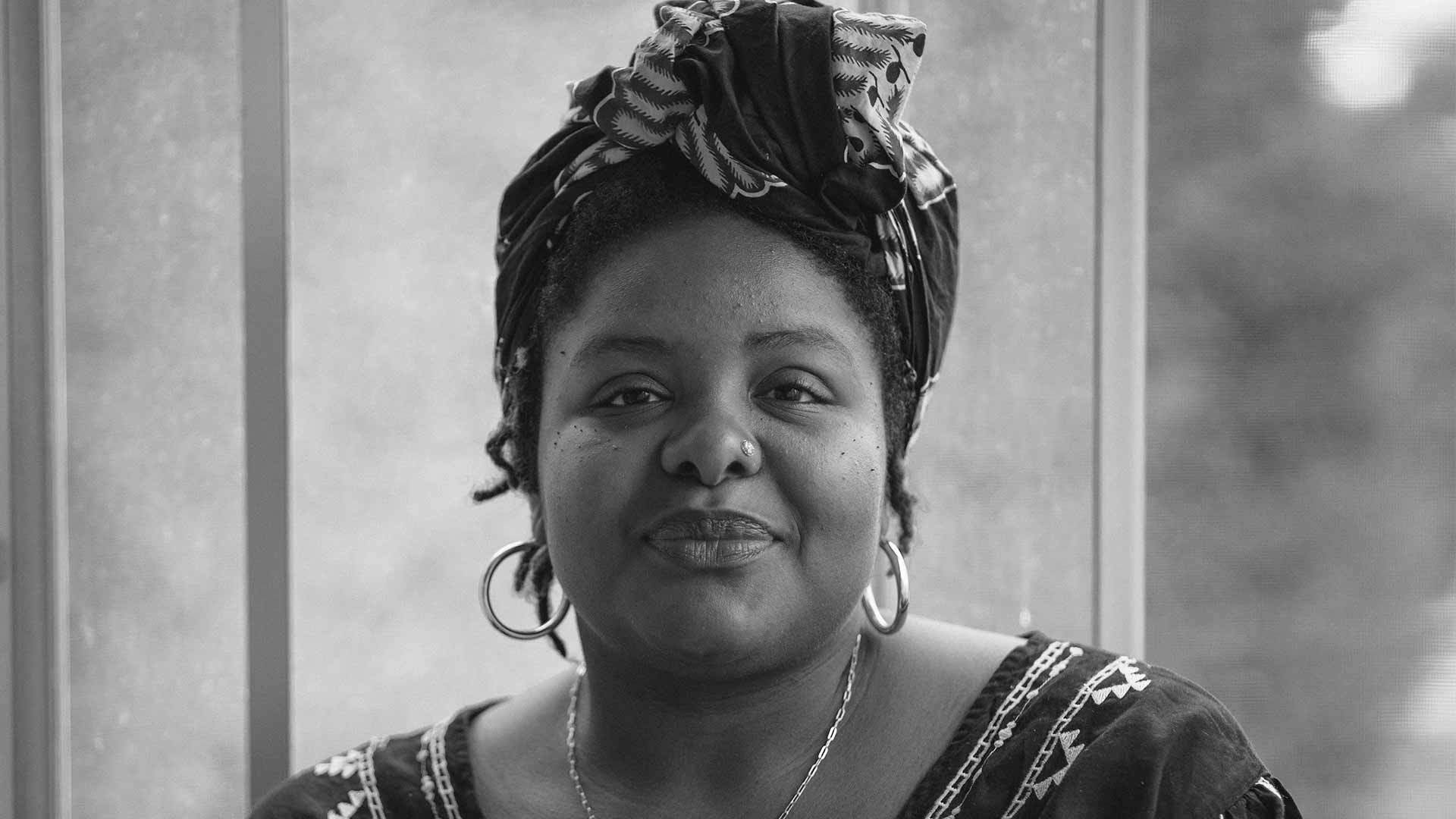| | | | | | | Presented By Goldman Sachs One Million Black Women | | | | Axios Markets | | By Kate Marino ·Oct 08, 2021 | | 🥳 Happy Friday, Markets crew! 📉 Stat of the day: Facebook's net favorability in the U.S. has collapsed by half since Morning Consult began tracking it in 2016. 🤔 🚨Situational Awareness: The September jobs numbers are due out this morning at 8:30 ET. All eyes will be on the report after the August figures showed a sharp slowdown in job gains. - The consensus calls for 488,000 new jobs (there were 235,000 in August), and for the unemployment rate to ease to 5.1%, from 5.2%.
📫 Let's get to it. Today's newsletter is 1,244 words, 5 minutes. | | | | | | 1 big thing: A rollercoaster week 🎢 |  | | | Illustration: Lazaro Gamio/Axios | | | | The stock market roller coaster ride this week was real, Axios' Courtenay Brown writes. Why it matters: This year was on pace to notch a rare milestone: a full 12-months without a pullback of more than 5% in the S&P 500 — until this week helped tip it further out of the running. - Stocks have already recouped almost half of those losses.
Here's a snapshot ... - Stocks have alternated between gains and losses of at least 1% for much of the past week — the longest wild stretch since June 2020, according to Bloomberg.
- As hints of a temporary debt ceiling truce trickled out on Wednesday, stocks staged the biggest midday comeback since February.
- Strategists say shelved fears about a federal debt default powered gains on Thursday (though, of course, no one can say for sure why the stock market does what it does).
Flashback: September typically isn't a good month for the stock market (it wasn't this year either). Historically, October hasn't been much better. - "There's less risk-taking that happens at this time of year: People don't want to lose money, for whatever reason, at the end of the year," says Rick Rieder, BlackRock's chief investment officer of global fixed income.
Other than the calendar, there's a back-and-forth about how big of a deal the things on the latest worry list will be — like a prolonged spell of higher inflation. What they're saying: "The number one question we get from clients is whether inflation is temporary or stays with us," Omar Aguilar, chief investment officer at Charles Schwab, tells Axios. - "People are more worried about it than they were a couple of weeks ago," says Aguilar. Not helping: supply chain snafus that may be getting worse and the commodity price surge of recent days.
Then there's the imminent taper. The Federal Reserve isn't pulling out of the game altogether, but it will ease up on the massive bond purchases that have helped buoy stocks. No one knows yet the pace at which the Fed will do it. - "The Fed is going to take its foot off the accelerator a little, so instead of driving 125 miles an hour, they're going to be driving 100 miles an hour. That's still fast," says Scott Wren, a global equity strategist at Wells Fargo Investment Institute.
The big picture: The S&P 500 is up nearly 50% from its pandemic-era low. - And for every market-watcher who says risks abound, there's another who says have no fear.
What's next: Earnings start to trickle out in earnest next week. - The number of companies telling Wall Street to pare back profit expectations has jumped compared to the prior quarter, according to FactSet.
- Still, they don't outnumber those that have said upcoming results will be even better than initially forecast.
|     | | | | | | 2. Catch up quick | | Amid the natural gas shortage, shippers are diverting tankers to the highest bidder, adding to the uncertainty in the market. (WSJ) Negotiators are close to agreeing to a deal to set a global minimum corporate tax rate at 15% after holdouts like Ireland indicated a willingness to sign on to the plan. (NYT) Samsung expects Q3 profits in its chip division to jump 79% compared to last year, driven in part by rising memory chip prices. (Reuters) |     | | | | | | 3. A near-relentless rise continues |  Data: Manheim Used Vehicle Value Index; Chart: Axios Visuals Used cars are the poster child of the pandemic economy — and prices are on the way up again. Driving the news: After two months of cooling wholesale used vehicle prices (what dealers pay), costs increased 5.3% in September from their August levels. - They're 27% higher on average than a year ago, according to the Manheim Used Vehicle Value Index released Thursday.
Why it matters: Inflation trends are under the microscope as the Federal Reserve weighs taking its foot off the economic gas pedal to prevent markets from overheating. - Soaring car prices are one of the biggest drivers of inflation indexes this year. But the cost increases are almost completely a result of global supply chain problems, as opposed to loose monetary policy.
Catch up quick: A chip crisis that originated in Asia manufacturing facilities last year and is now a full-blown supply chain nightmare has led to a shortage of new cars. - As an alternative, customers sought used cars in droves, sapping supply and sending prices through the (sun)roof.
Eye-popping stat: The individual model that's seen the biggest jump this year is the 2020 Toyota Corolla four-door sedan, with an average value of $19,450 on Oct. 1, compared to $13,600 a year ago (43% increase). What's next: Used cars will continue to defy history and behave like appreciating assets — in the short term, anyway. - Manheim anticipates that by December, average vehicle values will be up 30% for the year.
|     | | | | | | A message from Goldman Sachs One Million Black Women | | Black women receive less than .3% of VC funding | | |  | | | | Black women start businesses faster than any other demographic, yet they receive only 0.27% of VC funding. Goldman Sachs' One Million Black Women initiative aims to narrow this and other opportunity gaps through $10 billion in capital investment. Get more details.  | | | | | | 4. When Vanguard is 13X more expensive |  | | | Illustration: Aïda Amer/Axios | | | | Something very rare has just happened in financial markets: A startup called Daffy is challenging Vanguard Group on price. And by a huge margin, Axios' Felix Salmon writes. Why it matters: Vanguard Group is renowned for its low fees. It has saved investors billions, not only by charging them very little to manage their money but also by forcing its competitors to lower their own fees in response. So it's astonishing to see a startup offering a rival product at a 10th of the cost. The big picture: Donor-advised funds, or DAFs, hold money that donors have irrevocably pledged to donate to charity, and they generally charge a 0.6% fee — on top of the management fees associated with the funds they invest in. Driving the news: Daffy invests mostly in Vanguard and other low-cost ETFs. But it takes only a $3 monthly management fee for itself. - By the numbers: Someone with $500,000 in their DAF would pay $236 in annual fees for managing and investing that money at Daffy. That would compare to a yearly bill of $3,000 at Vanguard, $5,850 at Fidelity, or $7,100 at Schwab.
How it works: While most DAFs are marketed at very rich individuals looking to save on taxes, Daffy is aimed at the broad, non-itemizing public (although donations remain fully tax-deductible). The bottom line: Behind Daffy, the nonprofit, lies a for-profit startup named Aside that's VC-funded and aims to power many other DAF platforms. Like most startups, it's running at a loss, to begin with — which means it's effectively subsidizing Daffy's early adopters. Keep reading. |     | | |  | | | | If you like this newsletter, your friends may, too! Refer your friends and get free Axios swag when they sign up. | | | | | | | | 5. IMF intrigue |  | | | IMF managing director Kristalina Georgieva. Photo: Samuel Corum/Getty Images | | | | The Biden administration is publicly keeping its distance from the leader of the International Monetary Fund, Kristalina Georgieva, ahead of a key meeting Friday that could decide her fate, Axios' Hans Nichols writes. Why it matters: The global economy is at risk from any new COVID-19 variant. The IMF is confronting a credibility crisis, and questions about whether China is exerting undue influence on multilateral institutions in Washington. As the fund's biggest shareholder, the U.S. has an important say in its future direction. - Georgieva was scheduled to join President Biden at his COVID-19 summit on the sidelines of the United Nations General Assembly last month — but never appeared with him.
The backstory: Georgieva faces allegations she acted improperly in helping to compile the annual "Doing Business" report for the World Bank, which saw China's ranking improve. - "There is a review currently underway with the IMF Board and Treasury has pushed for a thorough and fair accounting of all the facts," said Alexandra LaManna, a spokesperson at the Treasury Department.
Between the lines: Losing the head of the IMF would present another political headache for Biden and weaken an institution serving as an international firefighter for countries facing economic collapse. Keep reading. |     | | | | | | A message from Goldman Sachs One Million Black Women | | Invest in Black women, transform the economy | | |  | | | | One Million Black Women, an initiative from Goldman Sachs, will commit $10 billion in investment capital. The goal: Increase opportunity at key moments in Black women's lives and create transformational economic growth. Learn more about the investment.  | | | | 📬 Thanks for reading! A reminder that your family, friends and colleagues can subscribe to Markets or any of Axios' other free newsletters through this link. |  | | It'll help you deliver employee communications more effectively. | | | | | | Axios thanks our partners for supporting our newsletters. If you're interested in advertising, learn more here.
Sponsorship has no influence on editorial content. Axios, 3100 Clarendon Blvd, Suite 1300, Arlington VA 22201 | | | You received this email because you signed up for newsletters from Axios.
Change your preferences or unsubscribe here. | | | Was this email forwarded to you?
Sign up now to get Axios in your inbox. | | | | Follow Axios on social media:    | | | | | |
No comments:
Post a Comment